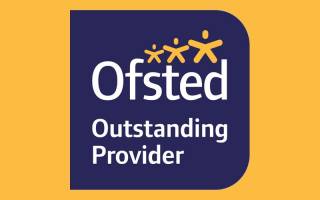Our curriculum is based around the best principles of early years foundation stage (EYFS) education and works towards the areas of learning specified by the Department for Education and Skills.
Play based curriculum
The UCL Day Nursery believes that children learn through first-hand experience, using their five senses to develop an understanding of the world. The desire to learn is natural and it is through playing with real objects and materials that they begin to make sense of their world. This is why we devise our curriculum plans with play as our basis.
The children’s day is carefully structured and planned, but allows plenty of time for free expression and free play. The atmosphere is relaxed, happy, fun and very importantly, is free from pressure and stress. We provide a wide range of learning and discovery opportunities to help the children in our care reach their full potential, whatever their age.
Each unit has a designated area where parents can view the curriculum plans for that room.
Babies and toddlers
The baby room aims to provide the babies with the opportunity to learn about themselves and others and discover and explore the world in which they live. The toddler room continues to develop the values and opportunities introduced in the baby room, albeit in a more structured environment that facilitates the children’s transfer to the over 2s nursery.
Activities for children in the baby room, toddler room, and the over 2s room are organised within the EYFS, which is divided into four themes:
- A unique child - every child is a competent learner from birth who can be resilient, capable confident and self assured.
- Positive relationships - children learn to be strong and independent from a base of loving and secure relationships with parents or a key worker.
- Enabling environment - the environment plays a key role in supporting and extending children’s development and learning.
- Learning and developing - children develop and learn at different rates and in different ways. All areas of learning and development are equally important and interconnected.
Each theme is then broken down further into a number of components. The principles of the EYFS focus on young children’s relationships with the key people in their lives and the experiences which facilitate their learning.
Children over 2
We offer a play-based curriculum, and children can move freely between all areas indoors and outdoors for most of the day. These areas are the construction area, the library, problem-solving and numeracy area, the role-play area, writing and book-making area, sand and water, and the sensory play and creative area.
In early childhood education, the richest play and discovery takes place when it is supported by adults who are able to judge when to join in and when not to, and when to teach a new skill or introduce a new concept. This is done best when children can revisit high-quality play experiences every day, week, month or year, refining their skills and developing their understanding, until they become experts in their skills.
Our key worker system is designed to ensure that we offer loving care and attention to children throughout the day, while our settling in policy helps children and their parents get the best possible start at the nursery. We also have a very effective behaviour policy help children's development in this area.
Each area of the Nursery provides a range of carefully selected equipment, some which is set out to welcome the children as they arrive others are stored in clearly labelled drawers that's the children are able to access throughout the day, during ‘free play’.
Throughout the day, normally in the afternoon, time is set aside for focused activities. The children may at this time split into ability groups, in twos or work individually. We aim to provide dedicated attention to all children throughout their day. When weather permits, the schedule always includes some safe, supervised outdoor activity so that the children can run around and play in the fresh air.
 Close
Close


